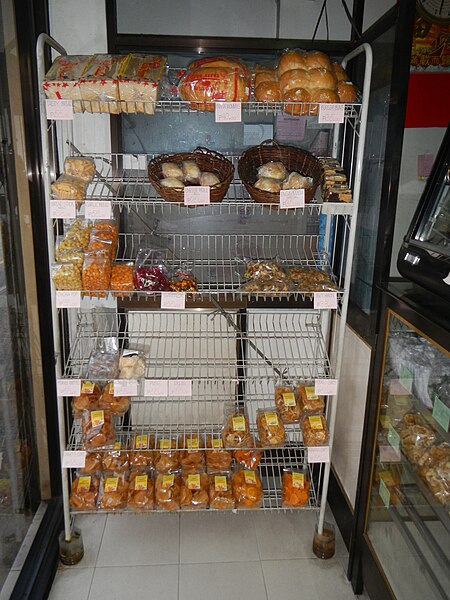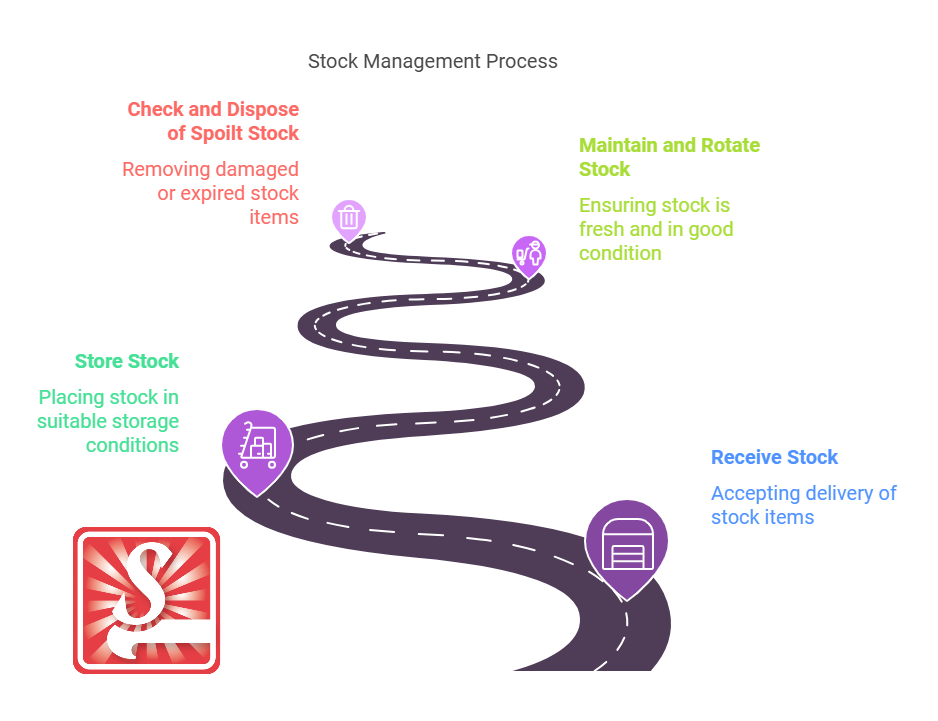Reducing Stock Wastage in Hospitality and Catering
Posted by SkillMaker in Jan, 2025
What is a concise description of reducing stock wastage in receiving, storing, and maintaining stock?

Reducing stock wastage in the hospitality and catering sector involves implementing effective strategies during the receiving, storing, and maintaining processes of stock management to minimize loss due to spoilage, expiration, or mismanagement. This ensures that stock is efficiently used, cost-effective, and contributes to sustainable business practices.
Why do people in enterprises need to reduce stock wastage when receiving, storing, and maintaining stock?
Reducing stock wastage is critical for enterprises to minimise financial loss and maximise profitability. Effective management of stock reduces unnecessary expenditure, supports sustainability by decreasing food waste, and ensures sufficient quality stock is available for operations, enhancing customer satisfaction and compliance with regulations.
“Managing stock efficiently not only cuts down costs but is also key to operational success and enhancing the dining experience for customers.”
What are the key components or elements of reducing stock wastage when receiving, storing, and maintaining stock?
Key components include:
- Accurate Inventory Management: Regular stocktakes and precise record-keeping.
- Proper Storage Practices: Maintaining optimal storage conditions to prevent spoilage.
- Effective Receiving Processes: Verifying deliveries against purchase orders for quality and quantity.
- Staff Training: Educating staff on handling procedures and waste reduction strategies.
- First-In, First-Out (FIFO): Rotation system to ensure older stock is used first.
What key terms, with descriptions, relate to reducing stock wastage when receiving, storing, and maintaining stock?

Registered Trademark®
- Spoilage: Deterioration of food products leading to waste.
- Inventory Turnover: Rate at which stock is used up and replenished.
- Stock Rotation: Practice of positioning stock to prioritize older items.
- Waste Management: Strategies implemented to reduce, reuse, or recycle materials.
- Supply Chain Coordination: Synchronizing inventory levels with suppliers.
Who is typically engaged with operating or implementing reducing stock wastage when receiving, storing, and maintaining stock?
Operations managers, kitchen staff, storekeepers, and inventory control professionals play key roles in minimizing stock wastage. They are responsible for receiving goods, managing storage spaces, monitoring stock levels, and implementing waste reduction practices in compliance with industry standards.
How does reducing stock wastage in receiving, storing, and maintaining stock align or integrate with other components of Hospitality and Catering?

Reducing stock wastage integrates with purchasing, menu planning, and cost control in Hospitality and Catering. By aligning inventory management with purchasing strategies and menu design, establishments can optimize stock use, reduce waste, and enhance service delivery, ultimately contributing to sustainability and profitability.
Where can the student go to find out more information about reducing stock wastage when receiving, storing, and maintaining stock?
What job roles would be knowledgeable about reducing stock wastage when receiving, storing, and maintaining stock?
Roles include:
- Inventory Managers
- Storekeepers
- Kitchen Managers
- Head Chefs
- Operations Supervisors
What is reducing stock wastage when receiving, storing, and maintaining stock like in relation to sports, family, or schools?

Reducing stock wastage in hospitality parallels how a sports team manages player resources by ensuring all players are optimally used and fit for the game. Within a family, it compares to budgeting household expenses to avoid unnecessary expenses and waste. For schools, it relates to ensuring resources are used wisely to support educational outcomes and avoid wastage of materials and time.
(The first edition of this post was generated by AI to provide affordable education and insights to a learner-hungry world. The author will edit, endorse, and update it with additional rich learning content.)


 Post Tagged with
Post Tagged with